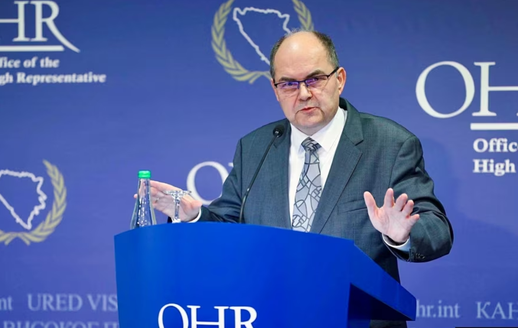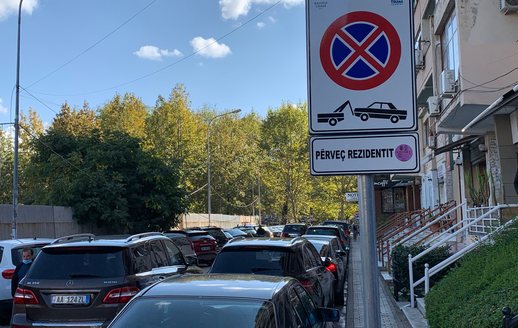
Unpredictability, proof of the independence of justice


The lifting of the "house arrest" measure against Sali Berisha by the Court for Corruption and Organized Crime (GJKKO) created confusion in our public sphere. The many reactions to the decision, sometimes happy and sometimes sad, had a common denominator; confusion.
This confusion was first noticed in the Berishist camp where Berisha was greeted with joy, as if he had been declared innocent. The question that disturbed the Parish party was, "how is it possible that Rama's justice let Berisha go free right before the parliamentary elections?" Wasn't the judicial reform done simply to get rid of the opposition, ie. the doctor?”
The first response in the face of the Berishist confusion was given by the media commissars of Berishism who warned the militants not to overdo the celebrations because they probably released Berisha to hit him even harder, maybe even within the family. According to this logic, Rama's SPAK released Berisha in order to punish Jamarbër, Argita, Liri or Shkëlzen.
And yet, this extenuating explanation for the Parishist fable, that SPAK arose simply to defeat the doctor, did not explain why Berisha had to be released in order to arrest his family members. If SPAK and GJKKO are blind tools of Rama, as the Berishists are convinced, they can imprison the entire Berisha family without a trace of shame.
Without mentioning the fact that the electoral logic of releasing Berisha to put Zenin in prison remains more mysterious than the holy trinity. In other words, the question of what Rama gains electorally and politically from the release of Berisha and the imprisonment of Zeni, remains unanswered.
Of course, there were also explanations of the type "Berisha was released by President Trump", by people close to Berisha but far from logic. So it is not worth the burden of rent to expose their absurdity. It is enough to clarify to the reader that Trump is not yet the president of the USA.
In conclusion, the poor political logic of Berishism failed to explain Berisha's release from Rama's GJKKO. Perhaps for this reason, Berishists focused on celebrating the decision as a great political victory, but which cannot be explained politically.
A similar phenomenon also appeared in the anti-Berisist and Ramist camp. Some complained that the decision was questionable because it came after pro-party protests. Others were sad because the court showed weakness in front of Berisha. Meanwhile, the majority began to argue that in fact Berisha is useful to Rama in the electoral campaign and not as a hero imprisoned at home.
Here too, political logic either cannot explain it, or it has nothing to do with the decision of GJKKO. The idea that Rama needs Berisha in a free state to legitimize the victory in the parliamentary elections of 2025 can explain the effect of the decision of GJKKO, but not the decision-making itself.
Although it is very unlikely that Rama is worried that his victory in 2025 could be delegitimized by Berisha's non-participation in the electoral campaign. It is enough to remember that Rama legitimized the victory in the local elections of 2019 without the participation of the DP, when it was led by Lulëzim Basha, who at that time was neither a non-woman nor under investigation for corruption.
Berisha comes out of isolation, the surprise decision of judge Floriana Davidhi
The victory of the SP in 2025, which already seems certain, will be denounced by Berisha both under house arrest and in a free state. It's hard to think that Rama is worried that Berisha can delegitimize his victory in 2025, especially in front of an international community that has long condemned Berisha and the Berishists.
It is even more difficult to imagine that GJKKO, before releasing Berisha from house arrest, took into account, or analyzed, the political effects that this decision would have on Rama's electoral accounts. Therefore, even in this case, political logic cannot explain the court's decision.
The more the political explanations of justice decisions are refined, the clearer the fact becomes that more and more these decisions cannot be explained according to political logic but according to a legal logic, which is the best because it is the simplest. Ockham's principle in philosophy states that if there are many different explanations for a phenomenon, then the best explanation is the simplest one.
In this case, in the face of political speculation, we have a legal explanation, as simple as it is convincing. Berisha was removed from house arrest because the investigation was completed and the case is in court. So he can no longer manipulate the evidence, there is no risk of him escaping, so there is no reason for him to be kept under arrest.
It is a much simpler and more convincing explanation than the spirals of political conspiracies that in the decisions of SPAK and GJKKO try to find traces of the parliamentary elections of 2025. In fact, for a long time these institutions take decisions that are more easily explained legally than in function of political calculations.
Such was the measure of Berisha's house arrest. It was not done by order of Rama to get rid of Berisha, but simply because the latter publicly and knowingly violated the legal obligation to appear. If Berisha had respected this legal obligation, like the vast majority of ordinary Albanians, then the measure of house arrest would not have been given. That's it.
To explain this simple event, Berishism has created a fable that is both conspiratorial and absurd that SPAK receives orders from Rama to get rid of Berisha. The arrests of high socialist officials, the arrests of Rama's political allies, the arrests of the criminal groups with which Rama won votes in Elbasan, Durrës and Shijak, are all reduced to a strategy to legitimize Berisha's arrest.
It remains a great mystery why Rama should sacrifice his close associates, lose millions of euros in corrupt affairs, tarnish his government, blow up the Tirana model, get rid of political allies like Lefter Koka, or hit criminal groups that, according to the Berishists themselves, ensure victory on the ground, simply to eliminate Berisha from the electoral race.
Is it no longer easy for Rama to defeat Berisha in the elections with millions of corrupt affairs, with criminal groups on his side, with his close collaborators in the government and with loyal allies who bring him votes?
In the end, the popularity of Berisha and Meta do not constitute any electoral risk for the SP to sacrifice so many ministers, criminals, money and deputies for the arrest of Berisha. Even more so when all this sacrifice has gone in vain because today Berisha remains free to campaign in the upcoming elections.
The void of political explanations of the judge's decisions stems from the fact that for the first time in the history of the Albanian state, the judiciary is making decisions that cannot be predicted politically. To understand this, it is enough to remember how politically predictable the decisions of the Albanian judiciary were, at least from the time of communism until today.
In communism, politics was identical to law. Therefore, a political punishment was identical to a legal punishment. The sentence given by the Labor Party was simply sealed by the court. For this reason, political logic explained 100% of the judge's decisions.
With the fall of communism, politics and law were separated theoretically but not in practice, especially at the high levels of politics. During the first Berisha government (1992-1997), the justice system took decisions with the eyes and ears of the doctor who, in his capacity as President of the Republic, was also the Chairman of the High Council of Justice.
If representatives of the judiciary resisted the political imposition of the executive, they left by force. This was the case of the former president of the Court of Cassation, Zef Brozi, who was not only dismissed in 1995 by Berisha but also physically threatened by SHIK. Therefore, the justice system continued to be a tool of the executive that made deeply political decisions
The most famous case was the arrest of the chairman of the Socialist Party, Fatos Nano, on July 30, 1993. At the time Nano was arrested, there was no doubt that he would be punished. Not because the accusation against him was solid, but because he constituted a political risk for Berisha, who directly guided the decisions of the justice system.
Only a year before, the Socialist Party led by Fatos Nano had convincingly defeated the Democratic Party of Sali Berisha in the local elections of July 28, 1993. This was the great sin of Fatos Nano, who was convicted by prosecutors and judges who were guided by the political interests of Berisha much more than the principles of justice. The political logic was superimposed on the legal one.
For the same reason, Fatos Nano's strong accusations of corruption against Ilir Meta and his ministers during the catharsis campaign in 2001 did not produce any criminal proceedings. Justice was not moved by Nano's accusations because it operated according to a deeply political logic.
For the justice system, it was clear that Nano's catharsis campaign served the latter to govern with the same ministers you had accused of corruption a while ago. In this case, the non-action of the judge was so politically predictable that it was not even noticed by our media, where no one is surprised, and few complained, why no criminal proceedings were opened after so many serious accusations of corruption.
The same political reasoning also explains the innocence of Fatmir Mediu and Shkëlzen Berisha after the Gërdec explosion. No one doubted that their political power would offer them protection and immunity from the judiciary, even though their direct involvement in Gërdec's crime was and remains a public secret. Even in this case, our justice system was guided by political calculation and not by the logic of justice.
Just as it happened with the corrupt affair of Ilir Meta, captured by the late Dritan Prifti. No one doubted Meta's corruption, including the Democrats. And yet no one was surprised that the justice system acquitted him, because the Berisha-Meta government had to be kept alive.
All are legal decisions that can only be explained politically. In fact, this has been the key principle of the functioning of our judiciary, especially in matters of high political profile. In these cases, the judge's decisions are determined almost entirely by the political interests of the government.
So today there is a lot of confusion, nervousness and bewilderment when something like this does not happen. Political analyzes have lost all capacity to explain and predict the decisions of reformed justice. Today, no one can predict with certainty the decision that GJKKO will make tomorrow in the Berisha case. This is the biggest proof that the new justice system is not a tool of the political interests of the government, and even less can be blackmailed by the opposition.
Of course, this does not mean that independence from politics automatically guarantees quality or well-reasoned legal decisions. This independence simply means that the decisions of our judiciary are increasingly politically unpredictable. And this is bad news for us political analysts, but very good news for citizens.
ideas
top
Alfa recipes
TRENDING 
services
- POLICE129
- STREET POLICE126
- AMBULANCE112
- FIREFIGHTER128






























